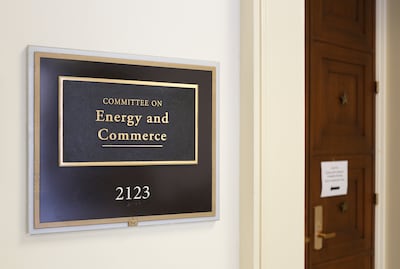
Market Access
A discussion with Karen Harris, CFO of the Alzheimer's Drug Discovery Foundation, about the foundation's investment strategy, biotech and investor sentiment at the recent BIO conference and what innovations give her hope for Alzheimer's patients.
Jana Grieb, European regulatory and market access legal expert at McDermott Will & Emery, explains why the healthtech and pharma industries are warming to the new EU health commissioner as he faces calls to make the MDR more “user friendly.”
While the adoption of most favored nation drug pricing in the US stands to affect Japanese biopharma firms now heavily reliant on this market, it might also present an opportunity for pricing and policy reforms at home.
Annual survey of patients and professionals shows how attitudes to health system transformation are evolving and what stakeholders are demanding as acceptance of AI tools accelerates.
The whirlwind back-and-forth on US tariffs and Robert F. Kennedy jr.’s plans to deregulate health care have become all-preoccupying, but the National Academy of Medicine was first to set out President Trump’s health administration priorities.
As pharmaceutical companies seek to transform how drug discounts are delivered under the 340B program, a federal ruling reinforces HRSA's authority. The industry must now wait for critical guidance from the Trump administration that could reshape compliance strategies and financial outcomes.
The FDA plans to implement generative AI for drug reviews by 30 June 2025, enhancing efficiency and potentially accelerating approval processes. Discussions with OpenAI about AI integration are ongoing.
In Vivo spoke to the previous commissioner of the US FDA about recent ongoings at the agency, and where he believes policy should be directed for patient and industry benefit.
Tumor infiltrating lymphocyte therapies show promise for solid tumors, with a first FDA approval, but face manufacturing and access challenges as development continues.
Big pharma plans to invest billions of dollars in US manufacturing to avoid tariffs proposed by the Trump Administration. However, the implementation of these plans may be delayed due to regulatory complexities and rising costs from tariffs, potentially impacting drug prices for consumers.
Market access concerns dominated at the annual BioWales In London event, where AstraZeneca set out industry’s priorities and the UK Office for Life Sciences struck an optimistic tone about how the UK will lastingly improve uptake of innovation.
Several biotech execs said they don’t expect much impact from the Trump administration’s threatened tariffs but are reviewing business practices to prepare.
As PBMs shift to value-based contracts, federal and state efforts seek to reduce drug costs, increase transparency and tackle anticompetitive practices.
Regenxbio is riding a wave these days, with all three of its clinical-stage programs set to reach critical milestones this year and recent positive news on its DMD gene therapy, just as Sarepta suffered a setback with a death related to its DMD treatment. In Vivo spoke with CEO Curran Simpson about the company’s plans and strategic decisions.
In the pharma and cosmetic sectors, innovation often arises from new uses for known compounds. While the compounds may not be patentable, their new applications can be. European law allows patents on substances used in medical methods, but not on the methods themselves.
In the wake of a series of unprecedented executive orders from US President Trump, the EU medtech industry faces significant political, regulatory and business challenges. Swift and strategic action is essential to ensure stability and safeguard patient safety.
Germany’s Union parties may have little alternative than to bring the SPD into a new four-year coalition, says Clifford Chance partner and life sciences legal expert Gunnar Sachs. Health policy will likely see both textural and structural changes.
Looking at a recent McKinsey report alongside our Evaluate data, the below infographic provides insight into the investment scene of pharma and raises questions as to how the industry is seemingly yet to seize the opportunity in women's health.
Nonprofits are finding new ways to address market gaps and develop treatments for rare diseases with little commercial attraction.
Improving reimbursement and integrating digital process across health care should be two priorities for the incoming German coalition, says Martin Walger, chief executive of the IVD industry association, the VDGH, in part two of his interview with In Vivo.



















